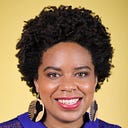In Harlem, We Need Food Justice Now!
For years, working-class families in Harlem have been besieged by pressing issues that have gone ignored by the establishment political class. One of those issues is ‘food insecurity,’ a term used not only to describe prevalent hunger, but also the unavailability of affordable, healthy foods in a community.
A decade ago, the New York City Department of Health found that the majority of Harlemites live within a “food desert,” lacking well-stocked supermarkets with fresh fruits and vegetables. In the absence of affordable, healthy food options, many working families are left with few choices beyond the convenient fast foods available in the neighborhood — foods that are often high in calories and unhealthy fats. This was — and continues to be — a huge problem that comes at a tremendous cost to our community, driving up our already-significant rates of diabetes, asthma, heart disease, and other ‘silent’ killers.
Fast forward to our present situation, in which a pandemic and an economic recession have lifted the veil on a problem that persisted, ignored, for far too long. Last year, food insecurity impacted over 13% of families with children across the country — an inexcusably high figure that included over 5 million children.
This year, amid the worst public health and economic crisis of our lifetimes, as many as one-third of all families with children are facing food insecurity.
Forget the luxury of buying healthy produce; many of us won’t have the means to purchase groceries at all.
How We Can Change This
To be clear, the problem of food insecurity goes beyond the placement and availability of supermarkets in Harlem. Activists and researchers committed to food justice recognize the problem within our for-profit food system and its countless incentives to industrial agriculture, fast food chains, and junk food producers — all of which comes at the expense of community health and the environment.
It doesn’t need to be this way. The inequalities in our food system that create what many rightly call food apartheid are neither inevitable nor insurmountable. Government investment in healthy foods, farmers’ markets, food banks, and urban farming initiatives could go a long way to addressing the challenges of food insecurity that undermine our health and well-being. We want to see mandates, incentives and investments that drastically increase green structures and publicly accessible green roofs, hydroponic plants and community gardens. With the right political will, we could make food more affordable and appetizing at once.
It’s worth noting that in the wake of government failures, grassroots initiatives like the “Harlem Community Fridge” provide a critical service at this moment: it is an inspiring form of mutual aid that showcases our power, and our resilience, as a community.
And it is the kind of initiative we could harness towards addressing the more systemic problems in our district. Food insecurity is not a problem that should be shouldered by volunteers or small businesses alone. After all, it is our city, our government, that has a mandate to provide the kind of services that would ensure all children and parents in Harlem are properly fed.
There are undeniable challenges to addressing urgent problems like food insecurity, economic inequality, and racial injustice, but grassroots initiatives show that, with the right amount of courage, imagination, and political will, they need not be insurmountable.
If we, as community members, can collectively take initiative and support one another through mutual aid, imagine how much more we could do if we forced the hand of City Hall.
Kristin Richardson Jordan (KRJ), Candidate for New York City Council District 9 Kristin is a poet, local activist, speaker, teacher, DSA member, Black queer woman, and third-generation Harlemite on a mission to disrupt District 9 (Central Harlem) with radical love. Started almost a year and a half before the murder of George Floyd, her Kristin for H.A.R.L.E.M. political platform includes advocacy for police accountability, abolition, affordable housing, redistribution of resources, senior care, gun control, education, and environmental justice. She is interested in making change both through her grassroots campaign and through a community-based participatory democracy once elected and has drafted policy on each of her HARLEM platform points. Find out more and get involved at KristinForHarlem.com.
